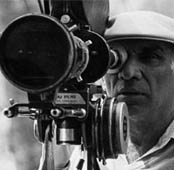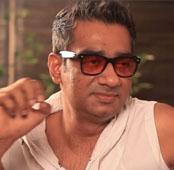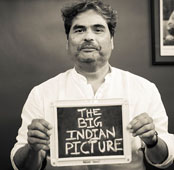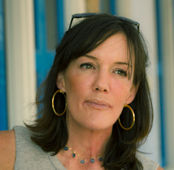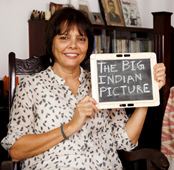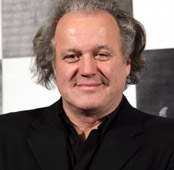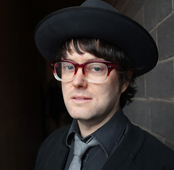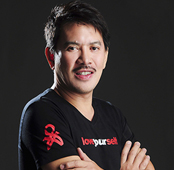-
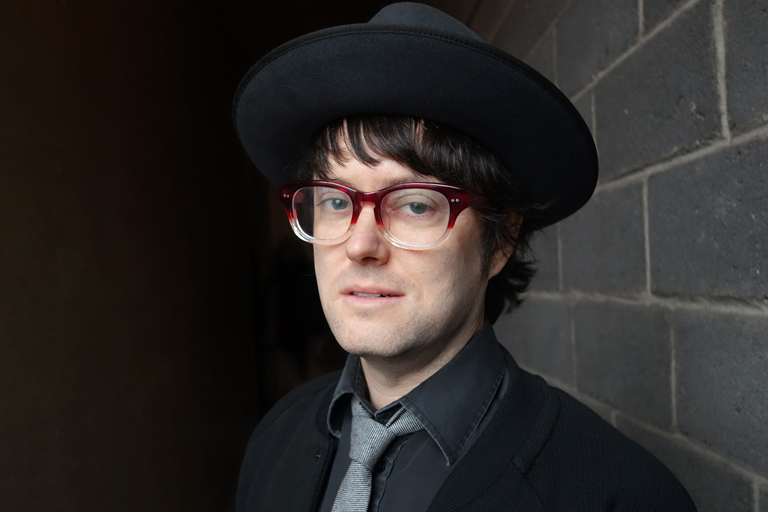 Maximon Monihan
Maximon Monihan -
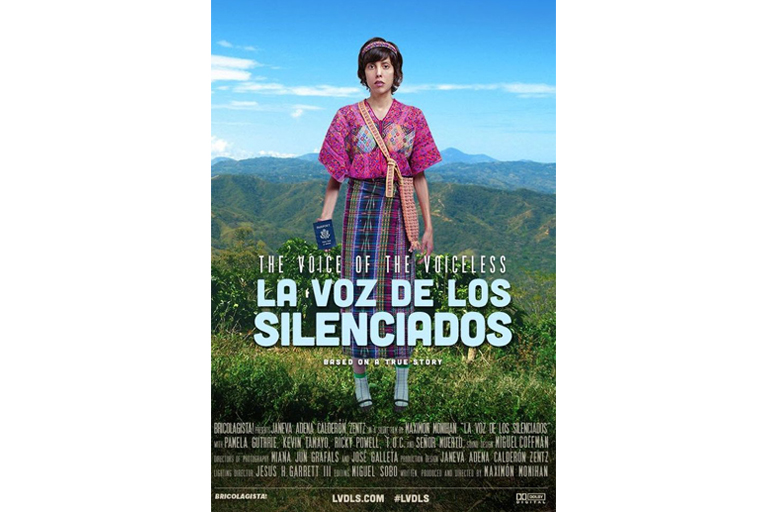 Poster of La Voz De Los Silenciados
Poster of La Voz De Los Silenciados -
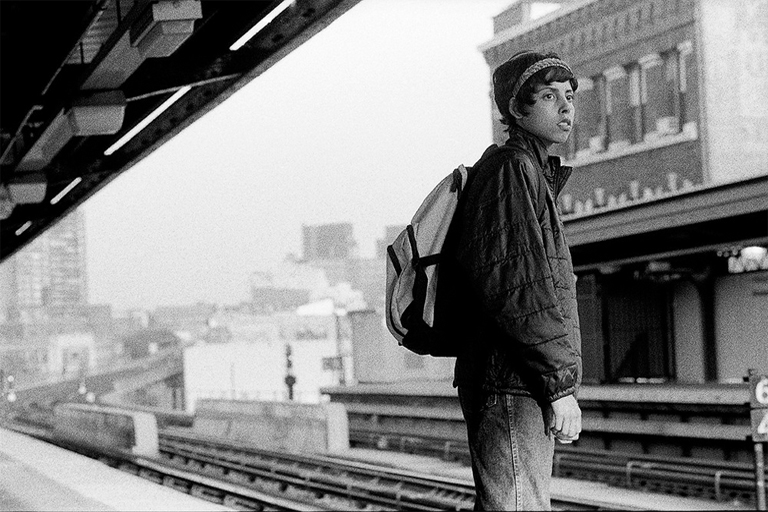 A still from La Voz De Los Silenciados (C) James Garrett III
A still from La Voz De Los Silenciados (C) James Garrett III -
 A still from La Voz De Los Silenciados (C) James Garrett III
A still from La Voz De Los Silenciados (C) James Garrett III -
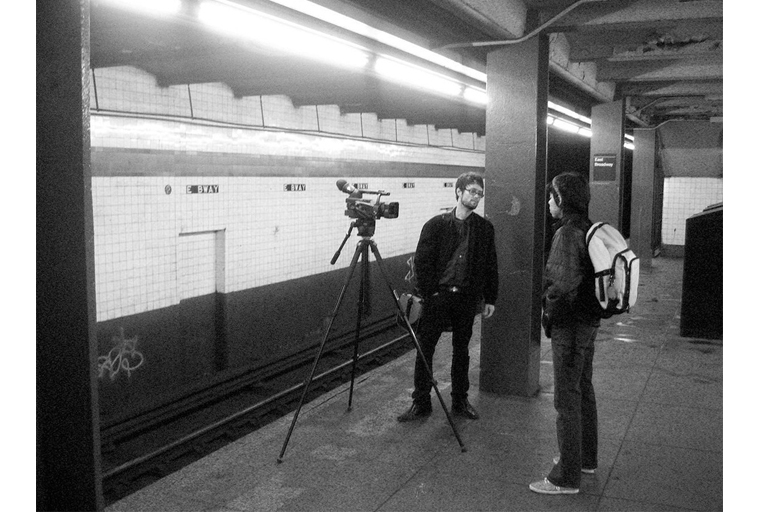 A still from La Voz De Los Silenciados (C) James Garrett III
A still from La Voz De Los Silenciados (C) James Garrett III -
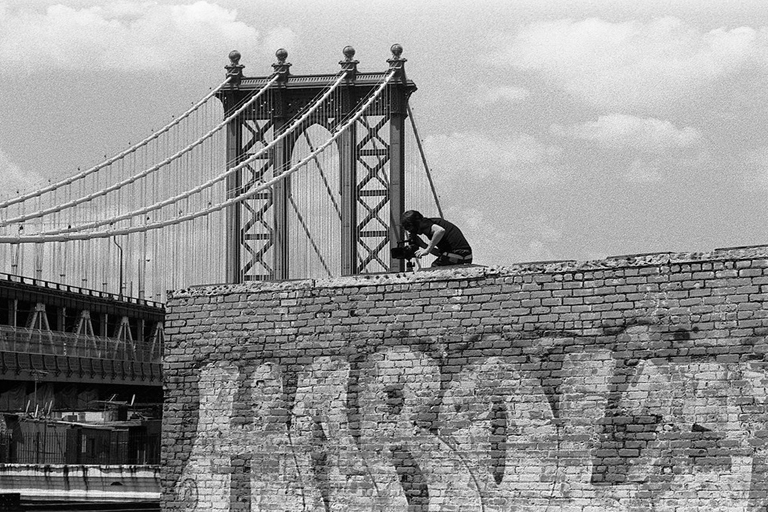 Behind the scenes of La Voz De Los Silenciados (C) James Garrett III
Behind the scenes of La Voz De Los Silenciados (C) James Garrett III -
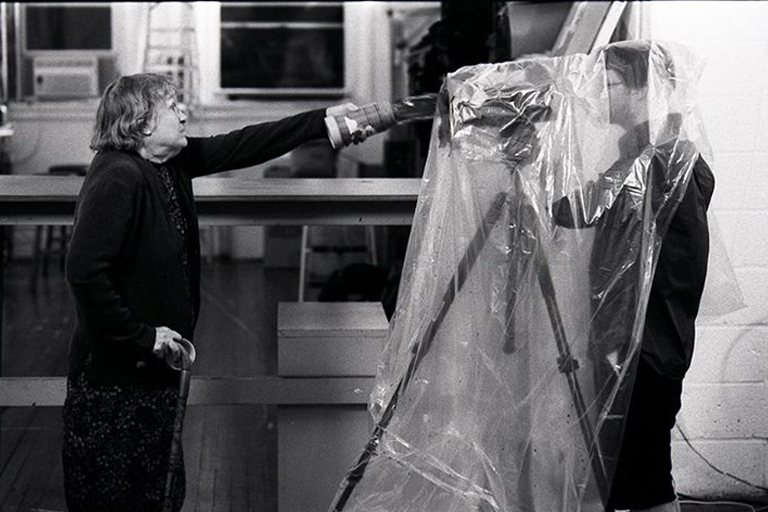 Behind the scenes of La Voz De Los Silenciados (C) James Garrett III
Behind the scenes of La Voz De Los Silenciados (C) James Garrett III -
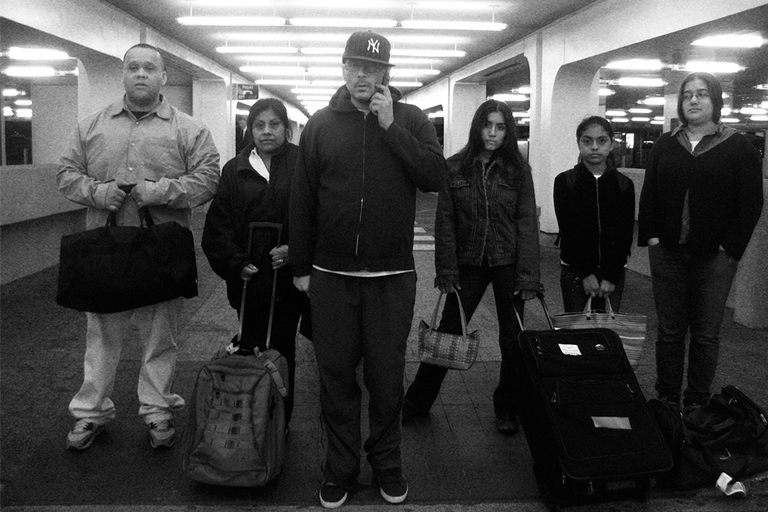 Production still with the fourth Beastie Boy Ricky Powell in the centre, La Voz De Los Silenciados (C) James Garrett III
Production still with the fourth Beastie Boy Ricky Powell in the centre, La Voz De Los Silenciados (C) James Garrett III
Voices from Afar is a series of interviews with filmmakers and film professionals, critics and experts from various countries around the world. The idea is to, through these voices, better our understanding of films and filmmaking communities which may seem alien at first glance, but whose joys and struggles, on closer examination, may have a deep resonance with our own.
Maximón Monihan, 44, is a Brooklyn-based filmmaker, writer, and former professional skateboarder who founded his production house Bricolagista! with 36-year old wife and partner Sheena Matheiken.
Their first feature film La Voz De Los Silenciados (The Voice of the Voiceless), won the Mumbai Young Critics Award at the 15th Mumbai Film Festival. It has also been screened at the Thessaloniki International Film Festival (in Greece), the International Film Festival of Kerala and the Dharamshala International Film Festival. Based on a true story and shot entirely like a pantomime, it traces the journey of Olga (played by Janeva Adena Calderón Zentz), a speech and hearing-impaired Guatemalan teen who comes to New York to enroll in a sign language school and unwittingly becomes the victim of an international crime ring. The movie is silent. There are English subtitles to explain the sign language in parts.
Previously, Monihan has appeared in landmark skateboarding films Hokus Pokus and Shackle Me Not and served as research assistant to African-American scholar-activists Herman Gray, Angela Davis and Akasha Hull. He also co-authored By Any Means Necessary: The Life and Times of Malcolm X: An Unauthorized Biography (as Ryan Monihan) and made a handful of short films as well as music videos for artistes like rapper Talib Kweli and DJ and producer Prince Paul.
I meet Maximón, Sheena, and the female lead of their debut feature, 24-year old Janeva Adena Calderón Zentz, in the lobby of a luxury hotel. The trio have just finished breakfast at the hotel’s coffee shop and by the looks of it, enjoyed it thoroughly. Maximón adjusts his trademark black fedora before we begin.
I’d like you to clarify something first. Is your name Maximón Monihan or Monihan Monihan?
Monihan (laughs): Right, so it’s like this. My real name is Ryan Maxwell Monihan. Maximón is my nickname. Nobody calls me Ryan anymore, and also, there’s a guy online named Ryan Monihan who makes really, really bad films. So if I say my name is Ryan Monihan, people will say, ‘Oh, I looked at your stuff, and… yeahhh…’ (grimaces).’ So I cut that out completely. I was in an old skateboard movie from a long time ago. And they had this stupid rap song in the middle where they say, ‘Monihan, Monihan, M-M-Monihan,’ over and over. It’s a refrain in a corny rap song where they use this J. J. Fad beat. That’s why everyone calls me Monihan Monihan. I’ve been called all sorts of bad stuff in my life, so this is totally normal.
What prompted you to turn film director?
Monihan: What most people don’t realize about skateboarding is that it was a sort of outcast activity. It wasn’t considered cool at all at the time I started, but we had our own culture. It’s mainstream now in many parts of the world, but at that point skateboarding was what the kids who didn’t fit in did. And because of that, it was very artistic. Nobody cared about competition. What they cared about was expression. We had no coaches in skateboarding. You create your own tricks, you make up your own names, you do your own stuff where there’s a lot of creativity.
Actually, a lot of the great filmmakers now come from skateboarding. There’s Spike Jonze, there’s Mike Mills. Then there are artists like Shepard Fairey. Because for skateboarders, the main form of attraction is filming new tricks, new stunts. So we learned a lot about filmmaking on our own. And a lot of the influence, whether it’s in music videos, advertising, or cinematic language you see nowadays, comes from the skateboarding culture.
In a weird sense, us ramshackle, know-nothing idiots have influenced the larger public. But skateboarding also taught me the language of cinema in a great way.
You’ve talked about skateboarding as a fringe culture. Has that rubbed off on your production house, Bricolagista!? You describe the company as a ‘pre-eminent subterranean creative collective’. Is there a conscious effort to remain unconventional in your approach to making films?
Monihan: Yeah, totally. We come from a very humble circumstance. There are no big production companies to provide backing. It’s just us. There’s no funding, no insurance, no permission, no permits. We do it all on our own, and that’s the only way we know how to do things. We make our way with whatever we can get our hands on. That’s what ‘bricolage’ really means— creating something with whatever you have at your disposal. It’s weird, because people think America is a rich country and you have access to everything. But the thing is, if you’re not connected there, you have access to nothing. There’s no government support like you have in some countries. You have to do it on your own, or you have to do it with some financing from a private source. And we’re not the sons and daughters of famous folks.
Janeva, are you a part of Bricolagista! as well? Because apart from acting in La Voz De Los Silenciados, you’re also credited as the Art Director of the film.
Monihan: Those drawings you see in the film? She did all of that.
Those were lovely. You’re a Visual Arts student…
Zentz: Right. There was a really short period when I helped Monihan out with video work and some of the commercial stuff he was doing. There was also a time I was trying to do some Art Director work in L.A., just to make up my mind and see whether I like it or not. I did two short films—student films—and then a public service announcement. There was a bit of experimenting. But I didn’t like it in the end. I didn’t get paid for a lot of the work I did because most of them were low-budget projects…
Did you get paid for this film?
Zentz (laughs): A very small, small, small amount.
Monihan: The thing is nobody got paid. I didn’t get paid, and (points to wife and producer Matheiken) she didn’t get paid. We were all doing it because we wanted to prove that we can make a movie.
Sheena, you’re a partner in Bricolagista!, and Max has talked about how hard it is to get by on little or no funding. But you do have production teams scattered across the globe, so how do you manage that?
Matheiken: The best way to describe how we work is this: our philosophy is to find like-minded people, people you have a certain chemistry with. So, over the years, we’ve done many projects—whether freelance or commercial gigs—where we’ve built great relationships with those we’ve worked with.
Monihan: It sounds ridiculous, but all those years of travelling around and staying on people’s couches, living the skateboarder’s dream, you come across highly creative people, and the relationships we build are lifelong relationships. So it’s not just about the money. I know a hugely talented person in Hong Kong, so if we have to do something in Hong Kong, we team up and all work together. In that way, you can say we have connections.
You’re not tied down by demands prevalent in big production companies…
Matheiken: We can be very nimble, that’s the beauty of being small. There’s no red tape and bureaucracy. Since we are a small team, we can deliver good quality work without compromising on anything or bowing down to people.
Monihan: There’s no overhead too. We’re like the A-Team. Just put in the different, crazy components in a van, and off we go. But this is how it’s going to have to be for a lot of people in the future, because big salaries, big overheads…
Matheiken: And the hierarchies… It’s stifling.
In the US, do you see La Voz De Los Silenciados being picked up by indie festivals like Telluride, or maybe even Sundance?
Monihan: We would love to be in those festivals, but it’s really, really hard. We don’t know if we can get in because we have no team of sales agents or production company behind us. That world is very, very insulated.
Matheiken: Things like Sundance, for example, the way it works, it’s very difficult to get someone who has connections within the industry to back the film if they haven’t produced the film or have not had anything to do with the film. And in our case it’s a bit too late to get someone with clout on board, I think. Also, Sundance promotes or gives a platform to movies or people who have applied for their grants (to the Sundance Institute). Those films are given a priority. We don’t know anyone in Hollywood. I’m not even a cinema person. I do interactive web designing actually, but I help Max out with the company and he helps me with my work. We collaborate on each other’s projects.
I also feel that movies like La Voz De Los Silenciados do better in Europe and Asia. The thing is, if a movie is shown at a festival in Europe, people back home in the US are like, ‘Oh, it must be worth watching!’
Monihan: So we’ll probably get attention after that.
Maximón, you said you’d met Janeva at a party. How did you know that she would be the one to play the hearing and speech-impaired Olga? It’s not an easy role for a first-timer.
Monihan: I like people who have a special personality. You can sort of sense when a person has an attractive persona.
Zentz: It was at a gallery opening in New York for Brad Kahlhamer, who’s a Native American artist. Between Soho and Chinatown, I think. I’ve sat for Brad a number of times, so I went to the party all dressed up. Anyway, I was attacking the snacks table. Free food, you know… but yeah, that’s how Monihan and I met.
There’s another cast member I want to ask you about. The ‘fourth Beastie Boy’, photographer Ricky Powell. How did that happen?
Monihan: Man, Ricky is such a character. He’s a really good friend. And he’s a handful— most people don’t know how to deal with him. He’s a true New Yorker, your eccentric New Yorker that everybody hopes is still there, one of a dying breed. Ricky is a unique person. It’s not an act with him. He is what he is…
Matheiken: It’s funny, because there are some scenes in the film where I’m like, “He’s overacting”, but he’s actually not.
Monihan: He can’t be any other way.
Zentz: He is over the top, but that’s who he is.
The story on which La Voz De Los Silenciados is based was in the news for barely a few days before people forgot about it.
Monihan: Yes. You have panhandlers on New York subways who sell ‘I am deaf trinkets’, and there was a tiny mention in the local paper about how this deaf girl who made a living on the subway was a victim of the slave trade. It was terrible. The way the media reports the news— they have news cycles, you know. CNN, for example, will just have a sub-line or ticker because they don’t want to keep showing the same thing. So they sweep it away under the carpet. If you didn’t catch it that day, you missed it.
What stood out in La Voz De Los Silenciados was the silent film approach, which totally takes you into the world of a hearing and speech impaired protagonist.
Monihan: Exactly. Our intention was to make audiences feel as helpless as Olga does when horrible things are done to her and other deaf-mute panhandlers. To somehow get a sense of what it’s like to not be able to speak out or cry for help like we would normally do.
So Maximón, as a director, what, to you, is more important- the story, the treatment, or character development?
It’s difficult to assign a level of importance, because they are all crucial. But what is usually missing in many movies is characters that take on a life of their own. Characters who transcend that first screening. I feel like I know Olga really well. I’ll never forget her. And it’s weird saying that because it’s somebody who we helped make up even though she’s based on a real life character.
You’ve spoken about how even though La Voz De Los Silenciados is a silent film, you didn’t want to be one of those who just ape silent era movies for the heck of it.
Monihan: Yeah, and I guess that’s pretty normal in ‘young American cinema’. There’s a lot of gimmicky stuff going on, with people trying to show how clever they are. I’m super self-conscious when it comes to that. I don’t want to be one of them, the ones who go, ‘Oh look how well we did this’, or ‘look how cool is this’. They focus more on the art direction and the look of it. I don’t like that. It’s kind of like, advertising-tainted filmmaking. It’s great that it’s beautiful to look at, but there needs to be a lot more to it.
It’s more style than substance.
Monihan: That’s right, style over substance. I mean, style can be substance too, but I don’t like this ‘twee’ stuff. It’s just annoying. I like stories with conviction, the ones that actually say something and make a point. A lot of people try to be too cool and pretend like nothing around them bothers them. I think it’s sad. People should stand up for something. You don’t want to be preachy, of course, or unnecessarily didactic. But you should still be smart and know what’s going on. There used to be amazing people in their teens and in their twenties making protest songs over the years. We don’t even have that anymore. There’s no Bob Marley, Johnny Rotten, or Joe Strummer any more. Nowadays you have machines like Justin Bieber, and that’s stupid.
Matheiken: You sound like an old man.
Zentz (laughs): Yeah.
That’s alright, nobody really likes Bieber.
Monihan: Yeah, like where are all the grown-up twenty year olds?
Zentz: Twenty year old revolutionaries? They’re all on Twitter.
Monihan: I mean I think they’re out there, but we need to find and encourage those voices.
You’ve spoken about a few of your cinematic influences, like Jean-Luc Godard. Do you have any other favourites?
Monihan: Well, at the top of my head… the neo-realists from Italy. But I really like some of the younger directors from Japan. There’s the guy who made Cha No Aji (The Taste of Tea) and Naisu No Mori: The First Contact (Funky Forest: The First Contact), Katsuhito Ishii. He adds a layer of magical realism to his films and I love that. When you’re older, magic in your life just gets pushed to the side. So yeah, I like the neo-realists, but I also love the ‘magical realists’. And there’s also Yosuke Fujita, who made Zenzen Daijobu (Fine, Totally Fine). These directors are new, they’re fresh, and they’re creative. They take chances, and are influenced by the craziness of the Godards and the like, but they do things their own way and in their own style. Then there are the classics by Yasujirō Ozu, Vittorio De Sica, and Federico Fellini. And (Hayao) Miyazaki and Aki Kaurismäki.
Was the magic penguin Noah in your film an ode to magical realism?
Monihan: Oh yeah. I mean, we all need a way to maintain our sanity through all our problems. And sometimes, the solution is an insane one. Noah was the only thing that brought some hope in Olga’s desolate life.
Is it true that you’ve written an unauthorized biography of Malcolm X?
Monihan: Yes. All of my skateboard graphics were about Malcolm X. I was a huge Malcolm X fanatic. I was going to say ‘Malcolm Xpert’ but that sounds lame (laughs). But yeah, he was my hero growing up, and for most of the kids in my neighbourhood too. Everybody lionized him. He gave us all a voice. It’s problematic to iconize anybody, but all the great things that he said, how he became the spokesperson for marginalized people back then, the way he spoke… he was such a great orator. It was huge to us. And this was before the Spike Lee movie came out, at a time when Public Enemy was big, so you had the whole revolutionary rap scene going on. Young people were becoming increasingly political. There were people like Huey Newton who influenced thousands, and Angela Davis was one of my teachers. So all these great people really spoke to what we were feeling at the time.
Are you planning to write another book?
Monihan: I haven’t thought about it. I’m too focused on doing our own stories right now, through films. But you know, I want to be an old man sitting on a beach writing novels. That would be a fucking dream. People tell me ‘You talk too much, you have too much to say.’ So I think I better put everything in a book, and people can just deal with it that way. So hopefully, I can keep writing as long as I live.
Maximus Minimus
InterviewJanuary 2014
 By Roshni Nair
By Roshni Nair
Roshni Nair is Trainee Correspondent at The Big Indian Picture



